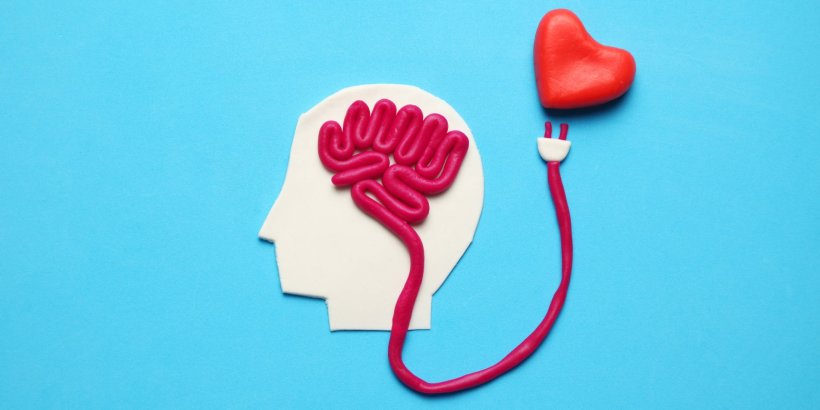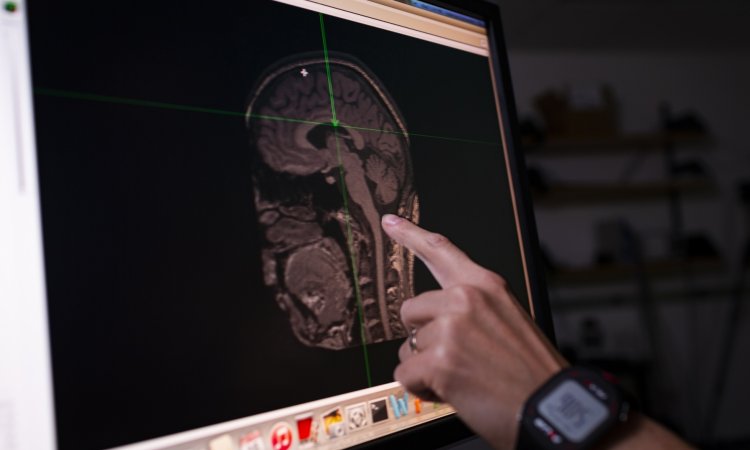
Image source: Adobe Stock/Andrii Zastrozhnov
News • "Broken heart syndrome"
Brain changes linked to emotion discovered in Takotsubo syndrome
Changes in areas of the brain associated with emotion have been identified in people with Takotsubo syndrome, sometimes known as broken heart syndrome, according to research presented at the British Cardiovascular Society centenary conference in Manchester.
Scientists at the University of Aberdeen also discovered changes in the level of brain activity in areas known to control the beating of the heart.
Takotsubo syndrome is a sudden form of acute heart failure which is estimated to affect as many as 5000 people in the UK each year and is mainly seen in post-menopausal women. It can cause the same symptoms as a heart attack, and although the arteries leading to the heart are not blocked, the risk of complications is similar to those of an actual heart attack. It’s not yet fully understood what causes Takotsubo syndrome, but it is usually brought on by emotional or physical stress such as the loss of a loved one – hence being also known as broken heart syndrome. Dr Hilal Khan, Clinical Research Fellow at the University of Aberdeen said: “For years we’ve known that there is a link between the brain and the heart, but the role this plays in Takotsubo has been a mystery. For the first time we’ve revealed changes in the brain regions that are responsible for controlling the heart and emotions. Further work will be required to determine if these changes cause Takotsubo syndrome. We hope that with more research we can determine which treatments are the most effective. We already hope to explore the impact cardiac rehabilitation and psychotherapy have on the structure and function of the brain after Takotsubo to ultimately improve care of these patients.”
This research is a significant step forward in our understanding of how the brain and the heart are intricately linked in this enigmatic condition, and how an emotional event can lead to heart failure
James Leiper
In the most detailed study of its kind, scientists looked at the brains of 25 patients who had suffered an episode of Takotsubo in the previous five days. They used brain MRI scans to measure brain volume, surface area, and the signals of communication between different areas of the brain. They then compared these results with control patients who were matched for age, gender, and other medical conditions. They found that there were decreased connections in the thalamus, amygdala, insula and basal ganglia of Takotsubo patients compared to healthy people. These are areas of the brain involved in regulating higher-level functions such as emotions, thinking, language, stress responses and controlling the heart.
The researchers also found that the thalamus and insula areas of the brain were enlarged, while the total brain volume including amygdala and the brainstem were smaller compared to healthy people.
The team now plan to perform follow-up brain MRI scans on the same patients to track the natural course of Takotsubo in the brain. They are also in the process of scanning the brains of heart attack patients in the hope of determining whether Takotsubo syndrome causes changes to the brain or whether the changes cause Takotsubo syndrome. Professor James Leiper, Associate Medical Director at the British Heart Foundation said: “Takotsubo syndrome is a sudden and potentially catastrophic heart condition which has only been recognised in recent years. Our understanding of the condition is still in its infancy, and so it is vital that we learn more about this neglected area of cardiology. This research is a significant step forward in our understanding of how the brain and the heart are intricately linked in this enigmatic condition, and how an emotional event can lead to heart failure.”
Carol Duncan, 73, from Aberdeen, is part of the study as she suffered an episode of Takotsubo after her brother fell ill and was admitted to ICU. She said: “Because Takotsubo can be triggered by an emotional event, there is a misconception that it is just in your head. Knowing that researchers saw measurable changes in my scans makes me feel that we are getting closer to Takotsubo being considered a physical condition. I am so pleased to have taken part in this research. It really gives me hope that scientists are moving towards fully understanding, and better treating this misunderstood condition.”
Source: British Cardiovascular Society
09.06.2022





